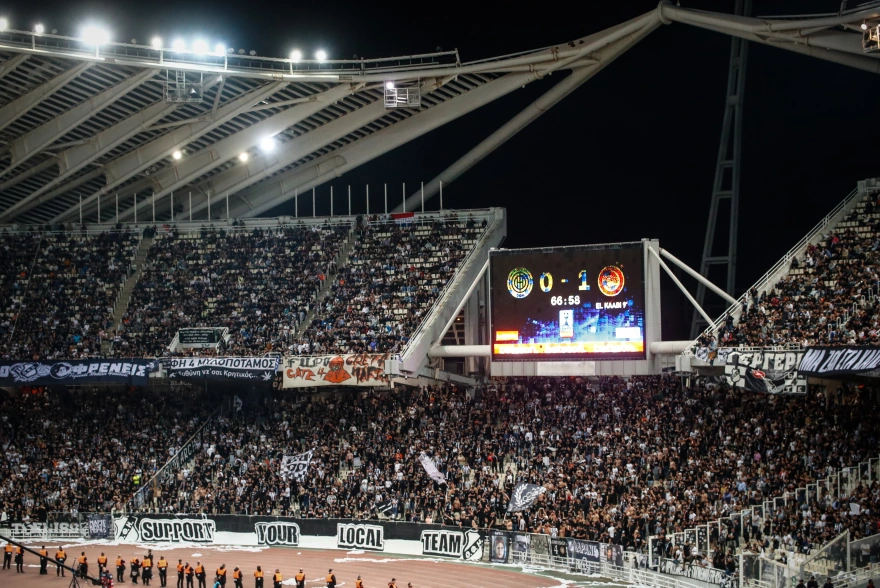The night was brimming with excitement, emotion, and spirited support, particularly from fans in Crete and Piraeus. However, it also underscored some organizational issues that reflect the ongoing challenges faced by Greek football.

A highlight of the evening was the impressive turnout of approximately 17,000 OFI fans—a powerful and inspiring sight in Greek sports, illustrating the cultural pride and fervor of a team rallying thousands. Prior to kick-off, Cretan dancers and musicians shared their traditions, creating a celebratory atmosphere reminiscent of earlier festivities.

While the overall organization was commendable, certain issues—like insufficient staff to guide spectators and limited visibility from aging stands—detracted from the experience. The trophy presentation was limited to a small area instead of the center of the pitch, and fireworks outside the venue created awkward moments.

On the security front, measures were robust, with police ensuring a peaceful event despite a prominent presence. A heartfelt moment was when Olympiacos fans applauded the OFI players at the conclusion of the match, showcasing rare sportsmanship. In contrast, the Polish referee Simon Marcinak faced criticism, despite his accurate and understated officiating.

The match itself underscored the disparity in quality: OFI appeared anxious and failed to pose a threat to Olympiacos, who controlled the game effectively. Coach José Luis Mendilibar’s tactical acumen was apparent, and fans appreciated the transformation of his team. For the first time in years, the final felt like a genuine celebration of the sport—overflowing with participation, a festive atmosphere, and moments celebrating football culture. This leaves hope that such experiences can pave the way for the future of Greek football.

Ask Me Anything
Explore Related Questions

















